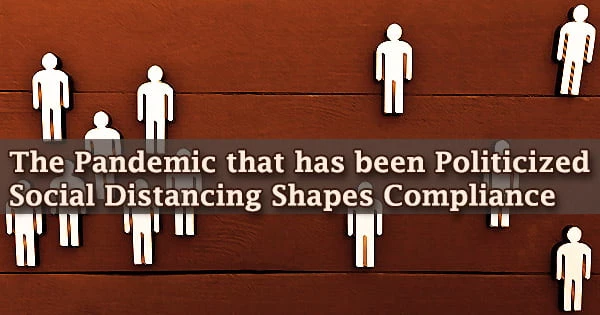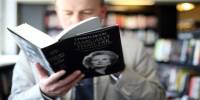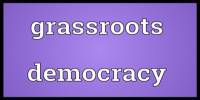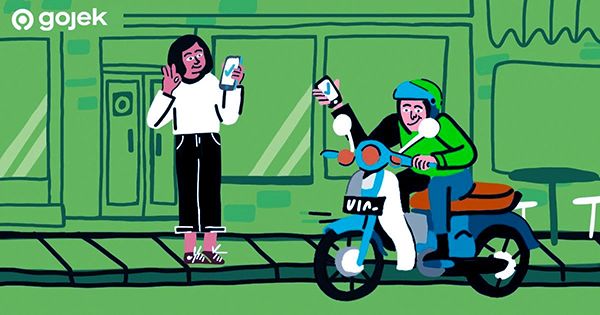According to a new study, the politicization of the COVID-19 pandemic had a significant impact on adherence to social distancing standards in the United States and why people did or did not comply during the lockdown days. The research participants had to decide who they trusted more: scientists or President Donald Trump.
“People who expressed a great deal of faith in President Trump, who thought he was doing an effective job of guiding us through the pandemic, were less likely to socially distance,” said Russell Fazio, senior author of the study and a professor of psychology at The Ohio State University. People who placed a high level of faith in scientists, on the other hand, exhibited the exact opposite pattern: they were more prone to engage in social distance.
“We were getting two-sided messages at the time from our government officials and public health scientists, so we had these two sources that were, in effect, working in opposition to one another. That pointed to the politicization of the pandemic.”
On the basis of everything we’ve known for decades of social psychology, it seemed clear that people’s pre-existing beliefs would affect their interpretations of the seriousness of the pandemic and the extent to which they would comply with these recommendations.
Russell Fazio
The study is published today (Feb. 24, 2021) in PLOS ONE.
Fazio’s research focuses on how personal ideas and attitudes affect behavior. When COVID-19 was discovered in the United States, it prompted lockdowns and stay-at-home orders, turning the national mandate into a massive research experiment.
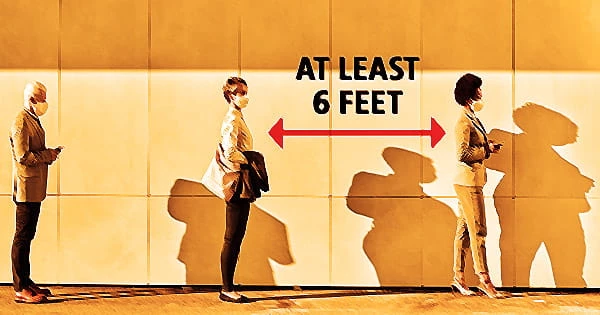
“On the basis of everything we’ve known for decades of social psychology, it seemed clear that people’s pre-existing beliefs would affect their interpretations of the seriousness of the pandemic and the extent to which they would comply with these recommendations,” Fazio said. “We thought we needed to directly assess that empirically, find out who was indeed complying or not complying and get some idea about which beliefs mattered.”
When the information campaign began, three factors were in play, according to the authors’ theoretical framework: the source of the message, the type of challenge the setting offered, and whether or not the virus was actually a danger. and the targets’ self-perceptions, in this instance the whole US population.
The volunteers were found on Amazon’s Mechanical Turk crowdsourcing marketplace. The survey included 2,001 participants from around the United States, spanning a wide range of ages, geographic areas, and political viewpoints.
In early May, the researchers polled the participants about their personal views on a variety of issues related to the pandemic, including how much they trusted sources of information, how concerned they were about the virus’s dangers, and how concerned they were about others’ vulnerability to getting sick.
Did they appreciate science, have faith in the federal government’s management of the epidemic, prioritize economic concerns above public health, and regard themselves as compassionate?
“We were interested in the extent to which an individual had a self-view as a compassionate person because at least part of the reason we were all engaging in social distancing was to protect one another. We were also interested, because of all of the misinformation that was floating around, in people’s general tendency toward conspiratorial thinking,” Fazio said.
A knowledge check: a true-or-false exam on 13 facts and myths regarding the coronavirus was paired with questions about views and political leanings.
The researchers gave study participants ten virtual behavior scenarios of diverse public places, such as a grocery shop, a busy beach, and a crossing, and asked them to position themselves or fictional persons in those circumstances based on their social distance preferences.
Although the participants were asked to self-report their social distancing behaviors, the simulated scenarios demanding “in the moment” judgments on how to react to various situations were thought to be more indicative of how individuals actually behaved in real life.
In fact, a recent study using follow-up data found that the more participants preferred social distance in the virtual settings, the less likely they were to get sick with COVID-19 in the following four months, proving the virtual measures’ validity.
Numerous correlations were discovered through statistical analysis. The practice of social distance was substantially related with trust in scientists, support for the recommendations, opinion that the virus danger was not overblown, worry about its spread, general science literacy, and COVID-19 knowledge.
Lower odds of adopting social distance were connected to trust and confidence in President Trump and the federal government’s performance, belief in conspiracy theories, a political bent toward conservatism, and a perception that economic health was more important than safety.
The findings, according to Fazio, make one question what could have happened if the American people had been exposed to more consistent messages.
“If there had been a single coherent voice communicating information, leading people to understand how serious the threat was and encouraging all of these preventive behaviors, including social distancing, I think we would have seen far more compliance,” he said. “That is what comes through the data very clearly.”
The National Science Foundation provided funding for this research. Benjamin Ruisch, a former Ohio State postdoctoral researcher now at Leiden University, and Courtney Moore, Javier Granados Samayoa, Shelby Boggs, and Jesse Ladanyi, all graduate students in Fazio’s group, are co-authors.
